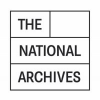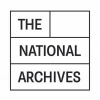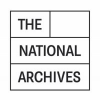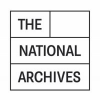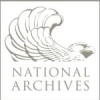Forces War Records (Original Records)
29M+ records
This nominal roll is a record of members of the Australian Imperial Force who served overseas during WWI.
This roll contains records of personnel within units and reinforcements of the Australian Imperial Force (AIF) as they embarked from Australia for overseas service during the First World War.
The Canadians were widely renowned for their effectiveness as field troops and served both on the western front and later in Russia against the Bolsheviks.
This is a collection of cards, printed in old style German, and completed in English. They contain varying amounts of personal details of prisoners of war held by the German Authorities during the Second World War.
A collection of records that have been submitted by members of Forces War Records
The Silver War Badge was issued in the United Kingdom to service personnel who had been honourably discharged due to wounds or sickness during World War I.
An act of parliament, The Representation of the People Act 1918, was passed to reform the electoral system in Great Britain and Ireland.
The official published Lists are often one of the best ways to trace an officer's career in the British Services.
The official published Lists are often one of the best ways to trace an officer's career in the British Services.
The official published Lists are often one of the best ways to trace an officer's career in the British Services.
First published in April 1918, Air force lists are an invaluable way of confirming whether a man was an officer and which rank(s) he attained.
The official lists are a snap-shot in time with names, ranks and unit details of those personnel who were members of the service as at that date.
The official published lists are often one of the best ways to trace an officer's career in the British Services.
The official published Lists are often one of the best ways to trace an officer's career in the British Services for historians and families.
The lists are a snap-shot in time with names, ranks and branch details of those personnel who were members of the service as at that date.
Throughout the Second World War, the Air Ministry regularly published Casualty Communiques through the Ministry of Information which announced, or updated the status of missing Air Force personnel.
Branch folders accumulated by the Air Historical Branch and unregistered papers from British Forces in the Middle East relating to operations, intelligence etc., mainly in 1915 to 1922, and from the Sudan Defence Force 1920 to 1939.
Before the United States entered WWI many Americans volunteered to serve in the armed forces of Great Britain and France.
The official published Lists are often one of the best ways to trace an officer's career in the British Services.
The official published Lists are often one of the best ways to trace an officer's career in the British Services.




